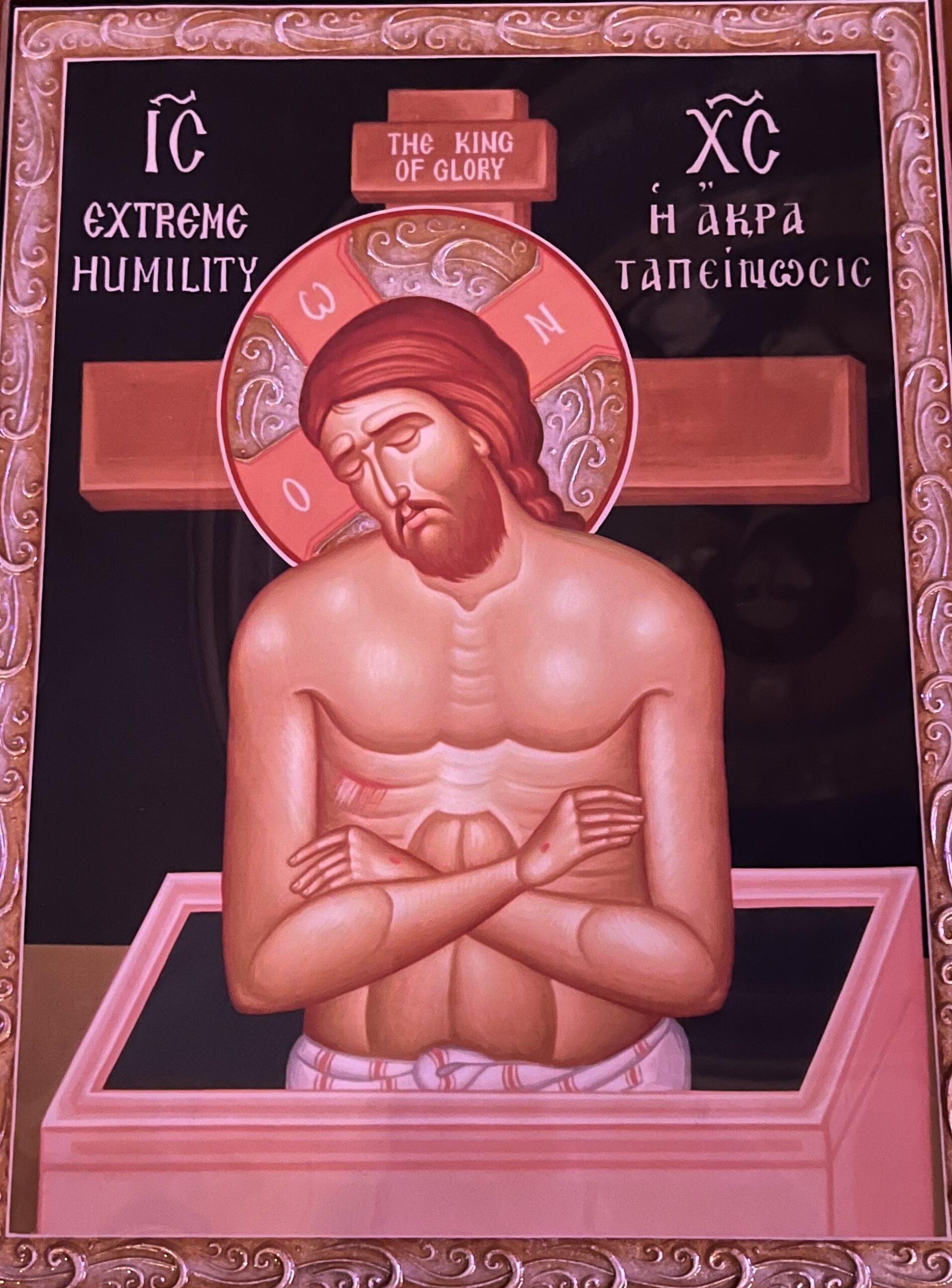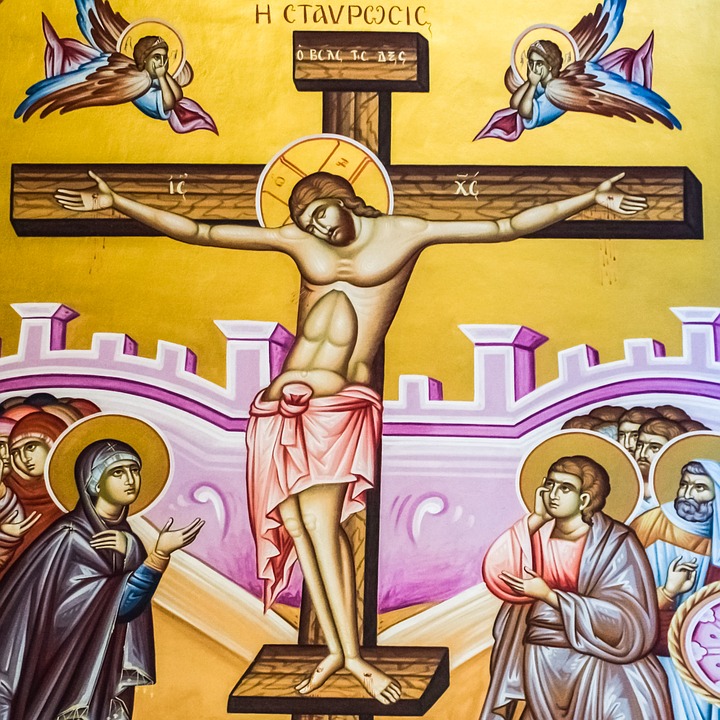Truly, truly I say to you, unless a grain of wheat falls into the earth and dies, it remains alone; but if it dies, it bears much fruit. He who loves his life loses it, and he who hates his life in this world will keep it for eternal life. If anyone serves Me, he must follow Me; and where I am, there shall My servant be also; if anyone serves Me, the Father will honor him.
John 12: 24-26
Many people discount the early days of Holy Week because there isn’t much “action.” The Scripture readings are Jesus teaching, which for some is less exciting than the Gospel accounts of His Passion, Crucifixion, burial and Resurrection. Holy Tuesday is the last day of Holy Week before the more intense days. The Passion of Christ begins with His betrayal, which is set in motion by the chief priests paying Judas to betray Jesus. The Gospel account of the deal that set the betrayal in motion is read on Holy Wednesday morning. And from there we will zoom ahead quickly with the Passion and Resurrection of Christ. Liturgically, Holy Tuesday is the last “easy” day of Holy Week. Beginning Holy Wednesday, the services get longer and are better attended.
The Gospel read on Holy Tuesday night is the last public preaching of Jesus before His Passion. John 13-17 contains the Last Supper and the farewell discourses of Christ to the Disciples before His arrest and Crucifixion. There are few important things found in these verses, which in many ways provide a summary of Jesus’ public ministry to that point. In John 12:24, we read “Unless a grain of wheat falls into the earth and dies it remains alone; but if it dies, it bears much fruit.” This is the basis of the Tradition of the Kolyva, or boiled wheat, which is offered at Orthodox Memorial services. This is a great example of a Tradition being based in Scripture. Nowhere in the Scriptures will we find a recipe for Kolyva. However, we read about the connection of wheat and death in Scripture. When a grain of wheat dies, it has to be separate from the stalk of wheat, in order to produce greater wheat. When we die as a Christian, we leave our life and go to a greater life.
John 12:25 reminds us that “He who loves his life loses it, and he who hates his life in this world will keep it for eternal life.” If we are so in love with our lives and our things and we leave no room for God to be at work in our lives, then we are loving life and according to Christ sill lose our lives. After our earthly life is over, we will lose the chance to have a life in Christ’s Kingdom. John 12:26 links being a servant with being obedient. If we serve Christ, then we follow Him. If we are servants, then He is the leader. This verse reminds us to evaluate how much of our life we let Christ lead. Is it all of our life? Or just on certain days or under certain conditions?
Jesus foreshadows His death when He says in John 12:32 “And I, when I am lifted up from the earth, will draw all men to myself.” Indeed, His death on the Cross would draw people all over the world. It would even draw Jews and Gentiles.
Jesus contrasts “light” and “darkness” in John 12:35-36, when He said “The Light is with you for a little longer. Walk while you have the Light, lest the darkness overtake you; he who walks in darkness does not know where he goes. While you have the light, believe in the Light, that you may come sons of light. Jesus revealed Himself as the Light of the world, but also told us that we are the light of the world in Matthew 5:14. If our life is filled with darkness, we will stumble and we will also not be able to fulfill our call to be lights in the world.
The liturgical highlight of Holy Tuesday is the Hymn of Kassiane. Despite the popular belief that she was a harlot who wrote a hymn, she actually was a nun, who wrote a “Hymn of the Sinful Woman.” The story is of an unnamed sinful woman who repented. This is contrasted with hymns about the betrayal of Judas which we are getting ready to commemorate on Holy Wednesday. Judas, as we know, was a trusted disciple, who turned away from the Lord in betraying Jesus, and even after could not accept the Lord’s forgiveness and he went and hanged himself. The sinful woman on the other hand, had separated herself from the Lord with her activities but through repentance received His mercies. The lesson here is that it is never too late to repent, no matter what we’ve done, and that it is not how we start but how we finish that is important. Here we contrast a disciple who fell away, contrasted with a sinful woman who repented and accepted God’s mercies.
The woman who had fallen into many sins, perceiving Your Divinity, O Lord, assumes the role of a myrrh-bearer; and lamenting, she brings the myrrh before Your burial. “Woe to me! She said; “For me, night is an ecstasy of excess, dark and moonless, and full of sinful desire. Receive the sources of my tears, You, Who gathers into clouds the water of the sea. Incline the groanings of my heart, You, Who in Your ineffable condescension bowed down the heavens. I will embrace and kiss Your sacred Feet, and wipe them again with the tresses of the hair of my head. Your Feet, at whose sound Eve hid herself in fear, when she heard Your footsteps while You were walking in Paradise in the twilight. O My Savior and soul-Saver! Who can ever track down the multitude of my sins, and the depths of Your judgment? Do not disregard me Your servant, You Whose mercy is boundless. (Hymn of Kassiani, sung on Holy Tuesday Evening, Trans. by Fr. George Papadeas)
Walk in the Light of Christ, and when you feel like darkness is overtaking you, repent and turn back to God.

